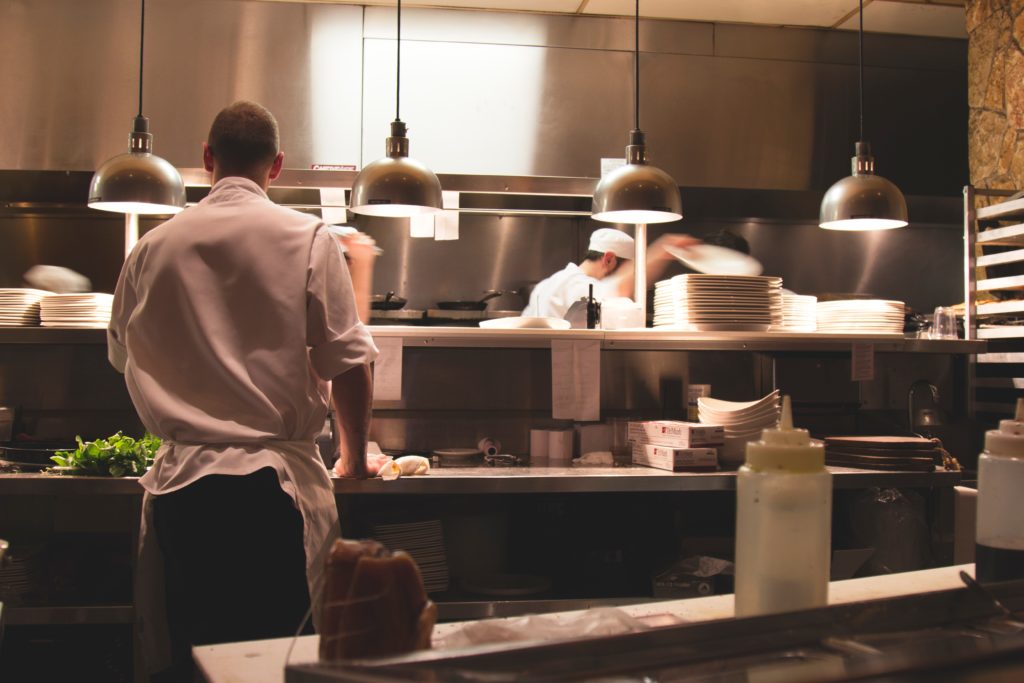 While it can be rewarding, lucrative, and creative, hospitality work isn’t easy. In fact, a number of hospitality industry-specific issues face many hospitality workers. From high levels of substance abuse, to sexual harrassment, to lack of benefits, hospitality jobs can be some of the most stressful and least supported out there. For hospitality workers facing any of these issues (or others), luckily they aren’t alone. As a huge industry in most cities, hospitality workers have organized, creating many vibrant and important unions, funding for support, and services for hospitality workers. If you are in need of support or seeking to advocate for better support for hospitality workers, check out some of these amazing support organizations for hospitality workers below!
While it can be rewarding, lucrative, and creative, hospitality work isn’t easy. In fact, a number of hospitality industry-specific issues face many hospitality workers. From high levels of substance abuse, to sexual harrassment, to lack of benefits, hospitality jobs can be some of the most stressful and least supported out there. For hospitality workers facing any of these issues (or others), luckily they aren’t alone. As a huge industry in most cities, hospitality workers have organized, creating many vibrant and important unions, funding for support, and services for hospitality workers. If you are in need of support or seeking to advocate for better support for hospitality workers, check out some of these amazing support organizations for hospitality workers below!
Hospitality Worker Unions
- Restaurant Opportunities Centers United is an organization advocating for America’s 14 million restaurant workers. ROC United has created a number of initiatives including One Fair Wage, a national employer association called RAISE, Diners United, and a number of other initiatives including research.
- Unite Here is a labor union largely comprised of women and people of color in the fields of airports, food service, gaming, textiles, manufacturing, distribuion, and transportation. Around 270,000 members are part of this labor union with affiliate groups across most major cities in America and Canada. Particularly in cities with a large number of union employers, wages and working conditions have been raised by Unite Here. Through it’s storied history UNITE HERE was formed by a merger between the UNITE union and the Hotel Employees & Restaurant Employees (HERE) union, among others.
- United Voice is an Australian union of over 120,000 members coming from service and education fields. 60% of United Voice members are women, and 50% come from cultural or linguistically diverse backgrounds. For a number of years this union has sought to promote quality health care, education, and wages for all Australian workers.
- Fair Hospitality is a charter and advocacy movement presented by Unite the Union in an effort to provide support and better working conditions for hospitality workers. Current initiatives include a push for a living wage, equal pay for young workers, rest breaks, paid transportation past midnight, anti-sexual harrassment policies, minimum-hour contracts, ROTA changes, 100% of tips to staff, and trade union access.
- There are currently 5 hospitality worker unions in France a nation known for strong labor unions. Despite strong unions, hospitality worker union membership is low compared to other industries in the nation. With that said, over 100,000 hospitality workers are members of the 5 major hospitality worker unions. Among the recent demands of these organizations are included a push for better protection of seasonal workers, a higher number of apprenticeships, and collective bartering on wages.
- The German Food and Allief Workers Union is one of 8 member unions that make up the German Trade Union Association. There are currently over 200,000 members of the organization which represents hospitality workers for Unilever, Nestle, and McDonalds among other large employers.
- Collective Labour Agreement for the Hotel and Restaurant Industry is a binding agreement among all Swiss hotels that applies to all hospitality workers regardless of union membership. This collective agreement governs a wide range of issues including holidays, notice of termination, working hours, and minimum wages.
- The International Union of Food, Agricultural, Hotel, Restaurant, Catering, Tobacco and Allied Workers’ Associations (IUF) is an international union representing workers in a diverse range of fields with headquarters in Geneva, Switzerland.Over 10 million members worldwide comprise the organization. For a list of hundreds of local affiliates of this organization, click here.
- The United Food and Commercial Workers Union represents over 1 million North American hospitality and commercial workers. Specific industries with large membership in the organization include distillaries, cannabis industry, packing and processing, chemical workers, retail, and grocery workers.
Resources for Supporting Socially Responsible Hospitality Establishments
- Ethisphere.com releases a yearly ranking of the world’s most ethical companies. Search the Lodging and Hospitality and Leisure and Recreation categories for hospitality-related brands that placed highly.
- FairHotel.org is a directory and app presented by Unite Here providing a directory of the most ethically-stringent hotel establishments in a number of countries.
- As reported by Green Hotelier, the BRE has released a tool for notifying international hotels of their obligations for ethical employment. Additionally, Green Hotelier keeps tabs on some of the most sustainable and ethical hotels in the world.
- Know How Guide on Human Rights is an informational pamphlet presented by the International Tourism Partnership and Green Hotelier. It covers the basic human rights that hospitality workers are afforded according to the UN.
- This Guide presented by New Zealand Immigration, spells out the basics of immigrant employment in hospitality in the nation, from rights afforded to workers, to expectations and logistical details.
- This Harvard Business Review Article covers the longstanding issue of sexual harrasment in hospitality settings. If you have experienced sexual harrassment, this might be a good starting point for reaching out to management, knowing your rights, or seeking to remedy the situation.
- The American Hotel and Lodging Association Policy Guide for 2017 spells out nationwide policies for employers, employees, and guests at (the many) participaing hotel and lodging establishments.
- Many hospitality workers are owed back wages, or have experience employers who are not paying them what they should. This tool presented by the U.S. Department of Labor data enforcement team, presents restaurants nationwide that are being investigated for underpaying employees. See if your current or past restaurant employers may owe you more than you’ve been paid.


